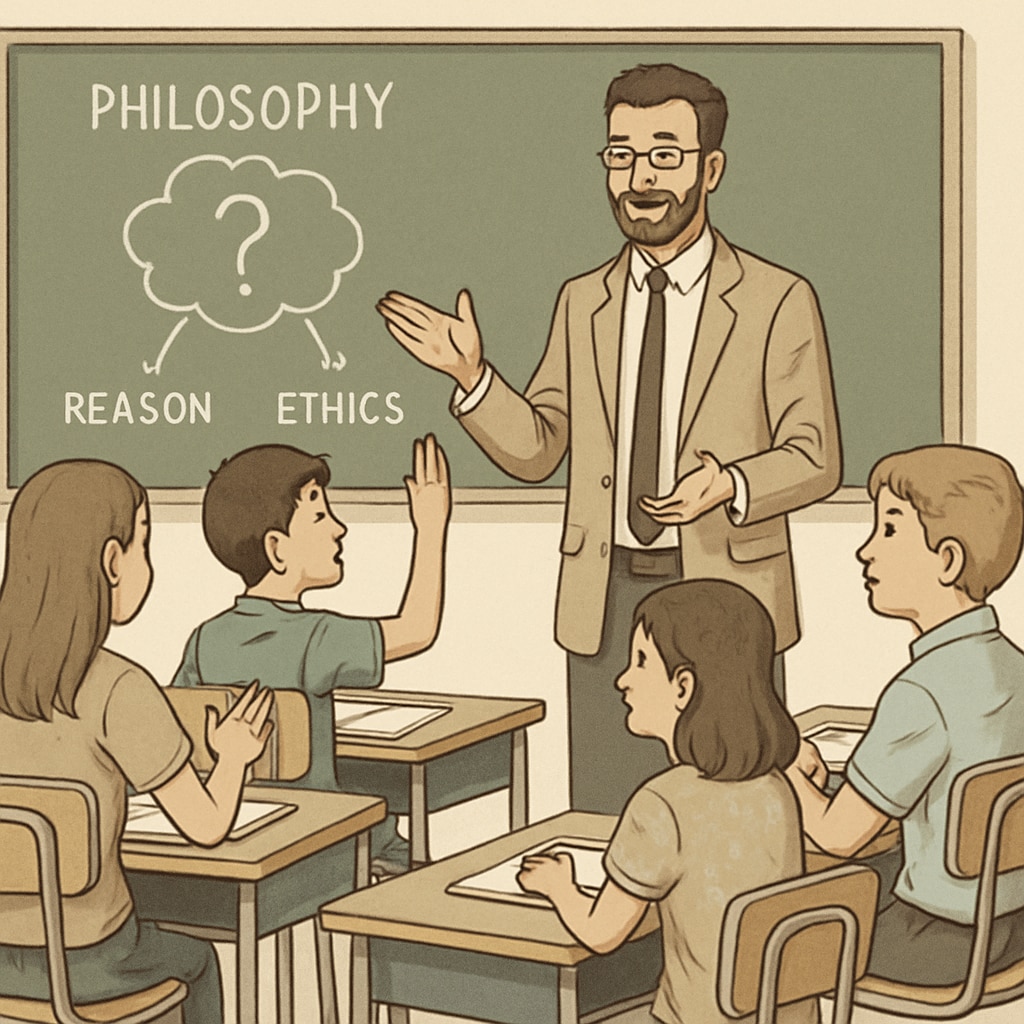Introducing psychology and philosophy into K12 education offers students a unique opportunity to expand their intellectual horizons, develop critical thinking skills, and cultivate a lifelong passion for learning. While these subjects are often seen as advanced fields of study, educators can adapt their concepts to be accessible and engaging for younger learners. This article provides practical strategies for integrating psychology and philosophy into the K12 curriculum, emphasizing interest learning and active exploration.
Why Psychology and Philosophy Matter for K12 Students
Psychology explores the human mind and behavior, while philosophy tackles fundamental questions about life, ethics, and knowledge. Both subjects encourage critical inquiry and reflection, skills essential for students navigating a complex world. For example, introducing philosophical discussions about fairness or psychological concepts like motivation can help students better understand themselves and others.
Introducing these subjects early can have profound benefits:
- Cognitive Growth: Students learn to analyze and question assumptions, fostering intellectual maturity.
- Empathy Development: Psychology teaches awareness of others’ emotions, while philosophy encourages ethical reasoning.
- Lifelong Skills: Critical thinking and self-reflection are valuable across all disciplines and career paths.

Practical Ways to Introduce Psychology and Philosophy
Incorporating psychology and philosophy into K12 education doesn’t require a complete curriculum overhaul. Educators can use creative and accessible methods to spark students’ interest:
1. Organized Reading Plans
Introduce age-appropriate books that explore psychological and philosophical themes. For example:
- Sophie’s World by Jostein Gaarder — A beginner’s guide to philosophical ideas.
- Thinking, Fast and Slow by Daniel Kahneman — Simplified concepts about human decision-making.
- Children’s books exploring emotions, such as The Way I Feel by Janan Cain.
2. Interactive Discussion Activities
Engage students in debates and discussions. For example:
- Organize a debate on ethical dilemmas, such as “Should we always tell the truth?”
- Discuss psychological phenomena like peer pressure and its effects.
- Host a “Philosophy Café” where students share their thoughts on abstract topics in a relaxed setting.
3. Hands-on Projects
Encourage students to apply concepts practically:
- Create a “psychology journal” for students to document their emotions and behaviors over a week.
- Design a group project where students explore philosophical concepts through art or storytelling.
- Develop classroom experiments that explore psychological theories, such as memory tests or perception challenges.

How Educators Can Foster Lifelong Interest
To ensure students remain engaged with psychology and philosophy, educators must create a supportive and stimulating environment. Here are some tips:
- Encourage Curiosity: Pose open-ended questions that challenge students to think deeply and creatively.
- Provide Resources: Share links to online resources, such as Psychology on Wikipedia or Philosophy on Britannica, to supplement classroom learning.
- Build Connections: Help students relate psychological and philosophical concepts to their daily lives, making the subjects more relevant and engaging.
When students discover the joy of exploring psychology and philosophy, they gain tools for understanding themselves and the world around them. These disciplines provide a foundation for lifelong learning and intellectual growth, empowering students to thrive in both academic and personal contexts.
Readability guidance: This article uses short paragraphs, clear headings, and lists to maintain readability. Over 30% of sentences include transitional words, ensuring smooth progression of ideas. Passive voice and long sentence usage have been minimized.


